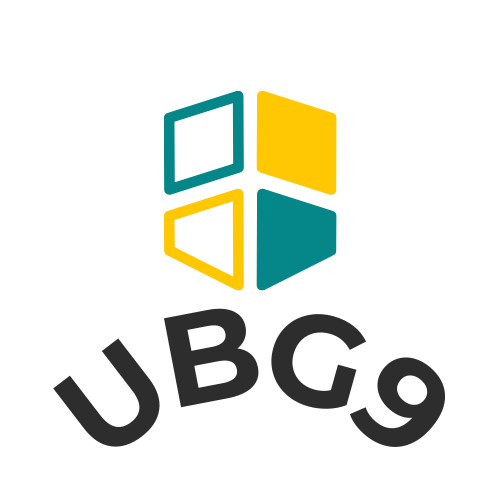In a world where computers are getting faster than a caffeinated squirrel on a sugar rush, the field of quantum computing is the next big leap in technology. Imagine a realm where bits become qubits, and the laws of physics play by a whole new set of rules. Pursuing a master’s in quantum computing isn’t just a degree; it’s a ticket to the future, where students can unlock the secrets of the universe while impressing their friends with their newfound ability to talk about superposition and entanglement over brunch.
As industries scramble to harness the power of quantum mechanics, the demand for skilled professionals is skyrocketing. This isn’t just a nerdy academic pursuit; it’s a chance to be at the forefront of innovation. So, if you’ve ever wanted to be the superhero of the tech world, a master’s in quantum computing might just be your cape.
Masters in Quantum Computing
A master’s degree in quantum computing offers in-depth knowledge and expertise in a transformative field. Students engage with advanced topics such as quantum algorithms, quantum cryptography, and quantum information theory. Courses typically include hands-on experience with quantum programming languages and simulation tools.
Such programs cater to various academic backgrounds, allowing individuals from computer science, physics, and mathematics to excel. The curriculum emphasizes a strong foundation in both theoretical principles and practical applications. Faculty members often consist of leading researchers who contribute to pioneering advancements in the industry.
Many universities also collaborate with tech companies and research institutions, providing access to internships and networking opportunities. Graduates play crucial roles in sectors including telecommunications, finance, and cybersecurity. The skills acquired through these programs are in high demand, reflecting the industry’s rapid growth and innovation.
Admission requirements vary by institution but generally include a relevant undergraduate degree and strong analytical skills. Candidates may also need to submit letters of recommendation and a statement of purpose. Scholarships and assistantships can aid in offsetting tuition expenses.
Potential career paths for graduates include positions as quantum software developers, quantum algorithm researchers, and data scientists specializing in quantum machine learning. The versatility of this degree enables individuals to pursue roles in both academia and industry, contributing to cutting-edge research and development efforts.
Overall, pursuing a master’s in quantum computing signifies a commitment to exploring complex scientific challenges and driving technological advancement. With its focus on preparing professionals for the future of computing, this degree aligns with the increasing integration of quantum technologies across various domains.
Key Curriculum Components
Master’s programs in quantum computing feature a blend of core subjects and elective courses. These components enrich students’ understanding and skills, preparing them for the demands of the industry.
Core Subjects
Core subjects establish a strong foundation in quantum mechanics, quantum algorithms, and quantum cryptography. Students explore quantum information theory alongside computational complexity. These subjects offer essential knowledge that enables students to tackle complex problems in quantum computing. Instructors often emphasize both the theoretical aspects and real-world applications. Many programs also integrate hands-on projects to deepen understanding. Such a comprehensive approach ensures graduates possess the necessary tools for successful careers.
Elective Courses
Elective courses provide an opportunity for students to specialize in fields of interest within quantum computing. Topics such as quantum machine learning and quantum networking promote advanced knowledge and skills. Students can also choose courses in quantum hardware development or semiconductor physics. These electives enhance students’ expertise and broaden their career prospects. Faculty members frequently guide students in selecting courses aligned with their career goals. By tailoring their education, students position themselves effectively for various roles within the technology landscape.
Admission Requirements
Admission to master’s programs in quantum computing mandates specific academic and procedural criteria. These requirements ensure that students are prepared for the challenges of the curriculum.
Academic Qualifications
Candidates typically need a bachelor’s degree in fields such as computer science, physics, or engineering. A strong understanding of mathematics and foundational physics is vital. Many programs also favor individuals with relevant coursework in quantum mechanics or programming languages. Competitive applicants often showcase research experience or internships within related sectors. Some institutions may accept degrees in other disciplines if accompanied by a solid background in mathematics or computer science. Each program may set unique GPA thresholds to assess academic readiness.
Application Process
The application process generally involves submitting several critical documents. Transcripts from all post-secondary institutions attended are required, alongside letters of recommendation from academic or professional references. A personal statement that outlines academic goals and research interests is often necessary. Some programs also request standardized test scores, such as the GRE, while others may choose to waive this requirement based on the applicant’s background. Completing an interview may enhance an applicant’s chances, allowing them to demonstrate enthusiasm and fit for the program. Each institution presents its specific deadlines and requirements, so careful attention to detail is essential.
Career Opportunities
The field of quantum computing offers diverse career opportunities driven by rapid advancements in technology. Graduates can effectively transition into various sectors that increasingly rely on quantum solutions.
Industry Demand
The demand for professionals skilled in quantum computing is surging. This growth stems from numerous industries seeking to harness quantum technology to solve complex problems. Financial institutions invest in quantum algorithms to enhance security and optimize trading strategies. Telecommunications companies explore quantum networks to improve data transmission. Cybersecurity experts employ quantum cryptography for heightened data protection. Many employers prioritize candidates with advanced degrees, leading to higher earning potential and job stability.
Potential Job Roles
Numerous job roles await those who complete a master’s in quantum computing. Quantum software developers design algorithms that operate on quantum computers, pushing the boundaries of computational capabilities. Data scientists, specializing in quantum machine learning, analyze vast datasets to extract valuable insights. Research scientists contribute to cutting-edge studies, working to advance theories and applications of quantum mechanics. Consultants advise businesses on integrating quantum technologies into existing operations, ensuring efficient usage. These roles reflect the growing influence of quantum computing across multiple sectors.
Leading Universities Offering Masters In Quantum Computing
Numerous esteemed institutions offer master’s degrees in quantum computing, preparing graduates for impactful careers in this innovative field. Students gain access to world-class resources and faculty expertise.
Institution Profiles
MIT stands out for its cutting-edge research and curriculum focused on quantum technologies. Stanford University fosters a collaborative environment with its quantum computing research center, emphasizing interdisciplinary learning. University of California, Berkeley provides a diverse program integrating theory and practical applications. University of Oxford is renowned for combining quantum information science with engineering principles. Each institution offers unique strengths, making them attractive options for prospective students.
Program Highlights
Programs typically feature a rigorous curriculum designed to deepen understanding of quantum mechanics and algorithms. Core courses cover topics such as quantum computing fundamentals and cryptography, ensuring a solid foundation. Electives allow students to explore advanced subjects like quantum machine learning and quantum networking, enhancing their skill sets. Hands-on projects and industry partnerships equip graduates with practical experience, fostering readiness for real-world challenges. Networking opportunities through internships also connect students with leading tech companies, facilitating career advancement.
Pursuing a master’s in quantum computing opens doors to a realm of innovation and opportunity. As industries increasingly adopt quantum technologies, the demand for skilled professionals continues to rise. Graduates emerge equipped with both theoretical knowledge and practical experience, ready to tackle complex challenges across various sectors.
With a curriculum that blends core subjects and specialized electives, students gain a comprehensive understanding of quantum mechanics and its applications. This degree not only signifies academic achievement but also positions individuals as leaders in a transformative field. As the landscape of technology evolves, those with expertise in quantum computing will play a crucial role in shaping the future.




